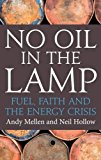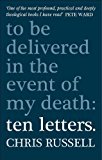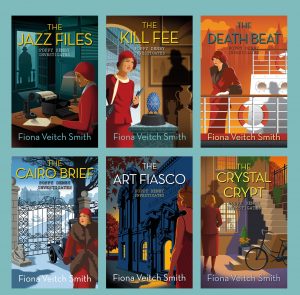Looking for a great holiday read? Meet Poppy Denby. Journalist by day, flapper by night. Fiendishly clever 1920s jazz age mysteries, shortlisted for the CWA Historical Dagger Award. Book 3, The Death Beat, will be out in October, so make sure you’ve read the first two by then! Buy the books here.
Me on the radio for World Book Day
This morning for World Book Day I spoke to Ian Britton of Premier Radio about my love for books and whether or not it’s ever too late to start reading for pleasure. The pic is of me last year on World Book Day at Knop Law Primary school, reading David and the Giant. Click here to hear the 3 minute interview.
My review of Art and the Bible, Francis Schaeffer
 Art & the Bible by Francis August Schaeffer
Art & the Bible by Francis August Schaeffer
My rating: 3 of 5 stars
I have been hearing about Francis Schaeffer for the last 25 years as one of the leading theologians to come out of the Jesus Movement of the early 70s. I eventually got around to reading him. The book is a collection of two essays on art and the Bible and what is meant by ‘Christian art’. The first essay ‘Art in the Bible’ was very disappointing. But perhaps this is because I am not the target readership. It appears to be aimed at the sort of evangelical Christian who needs a Biblical mandate to do anything from riding a bike to shopping at Asda. Do we really need to have ‘proof texts’ to allow us to create art and use it in a Christian context? Apparently so, and Schaeffer has done a good job of searching the scriptures to find them. However, I remind myself that if people like Schaeffer had not gone about stating what the majority of Christians today consider to be ‘obvious’ Protestantism and the Evangelical movement might still be imaginatively impoverished. Some would say it still is, but thanks to Schaeffer perhaps not as much as it was. The second essay ‘Some Perspectives on Art’ is a lot better. It gives a framework in which art can be appreciated and judged from the perspective of the world view of the artist. He also challenges the other Evangelical preconception that the only art forms that are permissible in a church environment are the Hebrew / Jewish ones we see in the Bible. So in the 80s instead of doing the old grapevine to ‘How good and how pleasant it is’ we could, if the beat allowed it, have done the quick step or the pogo ;)There is some good stuff in this second essay for anyone interested in faith and the arts, but please be aware that it was written to Christians 40 odd years ago who needed ‘permission’ to do what we do quite naturally now. I also disagree with his emphasis on propositional art – ie ‘art with a message’. Although he says that artists are free to create art with or without a conscious message or have ‘religious’ content, his theory that an artist cannot operate independently of her world view dilutes this. I am now reading Steve Turner’s ‘Imagine’ written 28 years after Art and the Bible. Turner is a student of Schaeffer’s and I am very interested to see how his teaching has impacted the thinking of the next generation.
Mamphela Ramphele and The Peace Garden

No Oil in the Lamp – how the energy crisis may affect us in the next 30 years
 This is an eye-opening book. Like many people of my generation (born this side of 1970 – just!) I do my best to recycle, turn out lights, buy Fairtrade and take public transport (whenever I have the time to do so, or when it’s not too cold, or when I don’t have big shopping bags to carry …). I’m even planning on making sure the next house I move to has a south-facing roof so I can install solar panels. But my efforts have been ad hoc at best. Until I read No Oil in the Lamp I had no understanding of the complexities behind the energy crisis and how it will impact every facet of life in the near future. I’ve heard scientists and politicians arguing about it but have never felt informed enough to really grasp what they were talking about. Andy Mellen and Neil Hollow have changed that. They sketch out in simple, unpatronising terms, the various arguments for and against each energy source. The concept of the long-term sustainability of each commodity consumed or energy source generated in terms of the ratio between energy-in and energy-out gave me a completely new perspective on my consumption. Scrupulously sourced and with more follow-up references than tunnels in a rabbit warren, this book could keep you busy for a very long time. But when you’re finished, don’t forget to pass it on: it’s essential reading! Oh, and they have an excellent website too www.theoillamp.co.uk
This is an eye-opening book. Like many people of my generation (born this side of 1970 – just!) I do my best to recycle, turn out lights, buy Fairtrade and take public transport (whenever I have the time to do so, or when it’s not too cold, or when I don’t have big shopping bags to carry …). I’m even planning on making sure the next house I move to has a south-facing roof so I can install solar panels. But my efforts have been ad hoc at best. Until I read No Oil in the Lamp I had no understanding of the complexities behind the energy crisis and how it will impact every facet of life in the near future. I’ve heard scientists and politicians arguing about it but have never felt informed enough to really grasp what they were talking about. Andy Mellen and Neil Hollow have changed that. They sketch out in simple, unpatronising terms, the various arguments for and against each energy source. The concept of the long-term sustainability of each commodity consumed or energy source generated in terms of the ratio between energy-in and energy-out gave me a completely new perspective on my consumption. Scrupulously sourced and with more follow-up references than tunnels in a rabbit warren, this book could keep you busy for a very long time. But when you’re finished, don’t forget to pass it on: it’s essential reading! Oh, and they have an excellent website too www.theoillamp.co.uk
I have also interviewed the editor of this book about the impact that the energy crisis and the decline of renewable energy sources might have on the publishing industry. You can read all about it over at The Crafty Writer.
10 letters: to be delivered in the event of my death
Published by Darton Longman Todd.
I picked up this book because of the similarity of its title to the Henri Nouwen book ‘Letters for Mark about Jesus’ – which had touched me deeply when I read it in my early 20s. Like Nouwen, the author has used a series of apparently personal letters to real-life people to address a wider audience about the nature of God, faith and the Christian life. I wondered: could this be a Letters for Mark for the 21st Century? One the cover, Pete Ward, a professor of theology at King’s College London is quoted as saying: ‘One of the most profound, practical and deeply theological books I have read.’ Was he right? I settled down over three evenings to find out.
Well yes and no. Some chapters touched and challenged me deeply – such as the chapter to ‘Eddie’ whose healing prayers for his dying father (‘in the name of Jesus’) had ‘failed’. And the chapter to his friend Marie who doesn’t believe she needs to be part of a church community to be a Christian. I must admit I couldn’t finish the letter to Tommy, his 12-month-old nephew who had died when he was struck by a falling lamppost in aLondonstreet. The questions Russell was asking about why God allows so much pain and suffering in the world; were just too close to the bone. I will go back and finish that letter – perhaps when I’m feeling less fragile.
However, there were other letters that didn’t touch me or challenge me in the same way. I came out of the letter to his worship-leader friend, Gemma, feeling that I had learnt nothing new; I felt the same way about sin in the letter to his atheist friend, Jonny. But that perhaps is because I am not an atheist and have what I might call a ‘healthy’ awareness of what sin is on a personal and corporate level. I have also spent many years thinking about and contemplating the nature of worship. So rather than a weakness of the book, I see this as inevitable in a work that is addressing so many different ‘types’ of people at different stages of their spiritual walk. Other readers may find these letters deeply challenging, and the ones that touched me, less so.
If you like books that don’t come from a ‘this is what the bible says so we can be in no doubt about it’ position, then you will not be disappointed. Russell, who is a vicar in the Church of England, could be described as a left-leaning evangelical. Some would say ‘Third Way’, but I think Russell himself would object to that label. However, if you do like books that come from a more fundamentalist tradition, then I would challenge you to read it too as it may just give you a framework to allow for the doubts we all have. I grew up in a (dare I say) right-leaning evangelical church. However, over the last 15 years I’ve felt the theological framework I had been given no longer fit the reality of my life or faith. Books like Russell’s (and Phillip Yancey’s and Eugene Petersen’s and Tom Wright’s and Henri Nouwen’s) have helped me stretch my boundaries and still allowed me to call myself a Christian. Let me know if it does the same for you.



